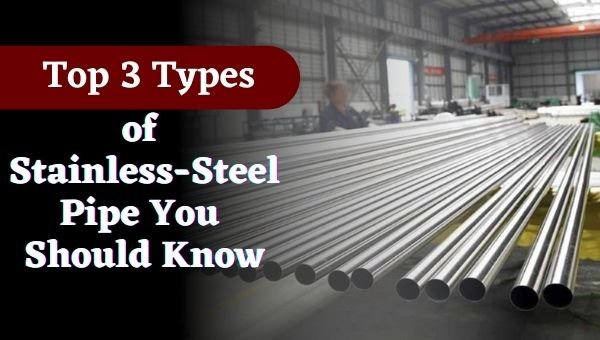Are you setting up a new food processing factory or water treatment plant? Don’t you know which material to use for your piping needs? We think relying on stainless steel products would be a good choice as they are resistant to corrosion, need low maintenance, and do not damage other metals if they come in contact with them. Since various stainless steel pipe distributors are available online and offline, how would you come to know which one is reliable and authentic? To determine that, you must look for the vendors that have spent two or more decades in the industry and still have a good reputation in the market.
In this article, we will gain a deeper insight into three main types of stainless steel pipe that you might not be aware of:
1 – 316Ti Stainless Steel Pipes
The USP of 316Ti pipes is that they are not likely to get harmed by intergranular corrosion. It’s because engineers use it after heating between 425 Degree C to 850 Degree C. This temperature range is generally known as the carbide precipitation range. Apart from this, there is a drawback to 316Ti steel tubes. You can’t use it as a welding consumable because titanium does not transfer nicely over a high-temperature arc. In short, you can use this stainless-steel pipe for applications requiring a temperature range of up to 900 Degree C.
 Just to let you know, 316Ti steel pipe is the advanced version of 316 stainless steel pipes. It contains high carbon content that boosts the high-temperature strength. That’s not everything; the manufacturers add materials with a lower percentage in 316Ti pipes to improve their strength and hardening ability. Such additions also help achieve unique properties like corrosion resistance, high-temperature sustainability, and high impact performance.
Just to let you know, 316Ti steel pipe is the advanced version of 316 stainless steel pipes. It contains high carbon content that boosts the high-temperature strength. That’s not everything; the manufacturers add materials with a lower percentage in 316Ti pipes to improve their strength and hardening ability. Such additions also help achieve unique properties like corrosion resistance, high-temperature sustainability, and high impact performance.
2 – 304 Stainless Steel Pipes
304 steel pipe is the most suitable product for piping applications because they have a high chemical and corrosion resistance ability. However, it is not considered a good product for applications where temperature varies between 800 to 1640 degrees F. It’s because, in that case, it becomes likely to suffer from carbide precipitation.
Having that said, 304 stainless steel tubes overcome this problem because of their lower carbon content. And that’s the main reason operators use it for welding and higher temperature applications. Though 304 steel tubes lack additives, other steel pipe types become more suitable for specific applications by the addition of nickel and molybdenum.
3 – 446 Stainless Steel Pipes
Best of all, 446 stainless steel pipes offer high resistance to corrosion and oxidation to rising temperatures. It contains some portion of iron and is non-heat-treatable. That means these pipes are entirely dependent on cold processing and strengthening using solid solutions. That’s what provides it with improved strength making it more robust than other stainless-steel pipes.
Aside from this, the machinability of such pipes is pretty good at slow speeds. All you need to take care of is positive feeds, sharp tooling surfaces, and rigid mounts. If you don’t know what machinability is, it is the level of ease required to cut or shape metals with an excellent surface finish. For example, materials that have good machinability will require little power to cut, minimize the wear and tear of the tool, and deliver a smooth surface finish after the completion of the task.
Another advantage of 446 stainless steel tubes is that you can weld them without a hitch using any of the conventional methods except oxyacetylene welding. But they are more challenging to operate for colder processes than other stainless steels, provided they have higher chromium content.
What are Some of the Standard Applications of Stainless-Steel Pipes?
- Textile operations
- Food processing
- Water treatment plants
- Fertilizers and pesticides
- Oil and gas processing
- Chemical applications
- Automotive components
- Pharmaceuticals
- Construction
- Breweries
What are the Benefits of Using Stainless Steel Pipes in Your Industry?
- Durable
- Lightweight
- Long-lasting
- Low-maintenance
- Scratch resistant
- Easy to machine
- Easy to sanitize
- Handles high flow rates
- Superior corrosion resistance
- Recyclable and environment friendly
Concluding Note
I hope you know which material to use for your piping needs at a food processing or water treatment plant. If you have any concerns about the quality of stainless steel pipes, you must check the seller’s reputation by going through testimonials and references online. Even if that doesn’t make the picture clear, you can start placing small orders first. Once you are happy with the pipe quality, you can focus on big orders then. However, we recommend transferring your capital to a trusted steel pipe distributor that carefully understands your needs and fulfills them, considering various sizes, grades, or specifications.







